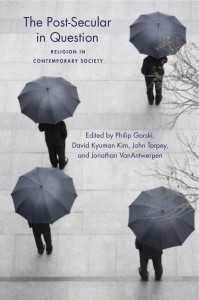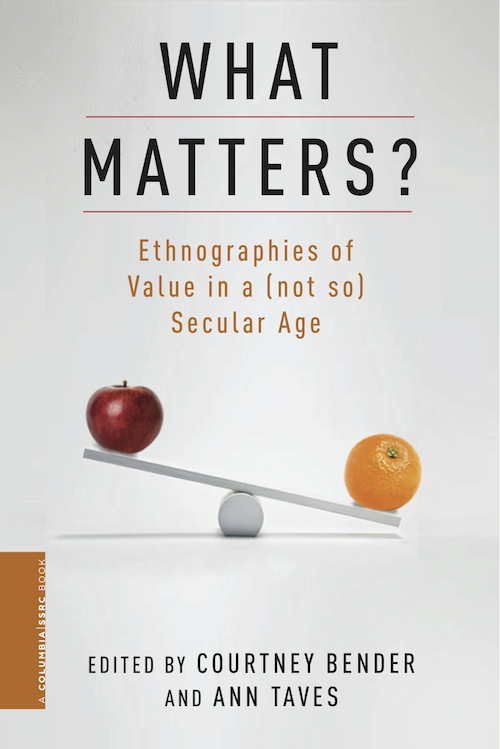
 Over at The Revealer, James S. Bielo reviews What Matters? Ethnographies of Value in a Not So Secular Age and The Post-Secular in Question: Religion in Contemporary Society, jointly published with the SSRC by Columbia University Press and New York University Press respectively. Bielo compares and contrasts the two volumes and their takes on religion and the secular, noting the overarching theme of entanglement:
Over at The Revealer, James S. Bielo reviews What Matters? Ethnographies of Value in a Not So Secular Age and The Post-Secular in Question: Religion in Contemporary Society, jointly published with the SSRC by Columbia University Press and New York University Press respectively. Bielo compares and contrasts the two volumes and their takes on religion and the secular, noting the overarching theme of entanglement:
Throughout the essays, there is a constant sense of entanglement. Religious-seeming impulses appear in self-scored secular domains, and vice versa. The language and categories of secularity are appropriated by religious communities, and vice versa. Social and intellectual histories are shown to harbor scientism and mysticism. Borders between the religious, secular, moral, ethical, spiritual, mystical, faithful, and rational are continually recognized, and then promptly crossed. The commitment to ambiguous boundaries owes to a shared premise between the two volumes: the religious and the secular are, and have always been, locked in a dialectical relationship. This stance is reasserted throughout the volumes, usually with a nod to Talal Asad’s Formations of the Secular (2003). In stressing this dialectic, the authors largely accept that the definition of one will impinge on how the other is defined, that they travel together historically (you can’t have one without the other), and that neither is an inevitable outcome (they both were, and continue to be, fashioned under particular socio-historical conditions). The sense of cultural contingency is strong here. Contextual sensibilities weigh heavily. Empirically-based claims are kept very specific. There is a pervasive weariness toward universalizing arguments, particularly ones that leap across historical epochs or ignore Western/non-Western differences.
Read the full review here. Read excerpts from The Post-Secular in Question, by Bryan S. Turner and Michele Dillon.













All this talk of ‘context’ in the religious can be set aside if Bielo managed to pick up any cultural geography book from the last two decades. And as for the “pervasive weariness toward universalizing arguments,” he could start with the early writings of Yi-Fu Tuan (http://en.wikipedia.org/wiki/Yi-Fu_Tuan) and the later work by Doreen Massey on space and place.
In my recent review of the Rethinking of Secularism (Anglican Theological Review, vol. 94, no. 2) I noted that the study of secularism from Taylor to the Rethinking volume had been preceded by a very thorough and comprehensive study of the origin and significance of secularism, which is entirely unknown to the authors of the later study. I also noted that the authors of the earlier study had asserted that the secular can never remain purely secular but always tended to become religious again but in a perverted way. This was first asserted by Kierkegaard, and reported by Howard A. Johnson in one of his lectures in Japan in 1952.